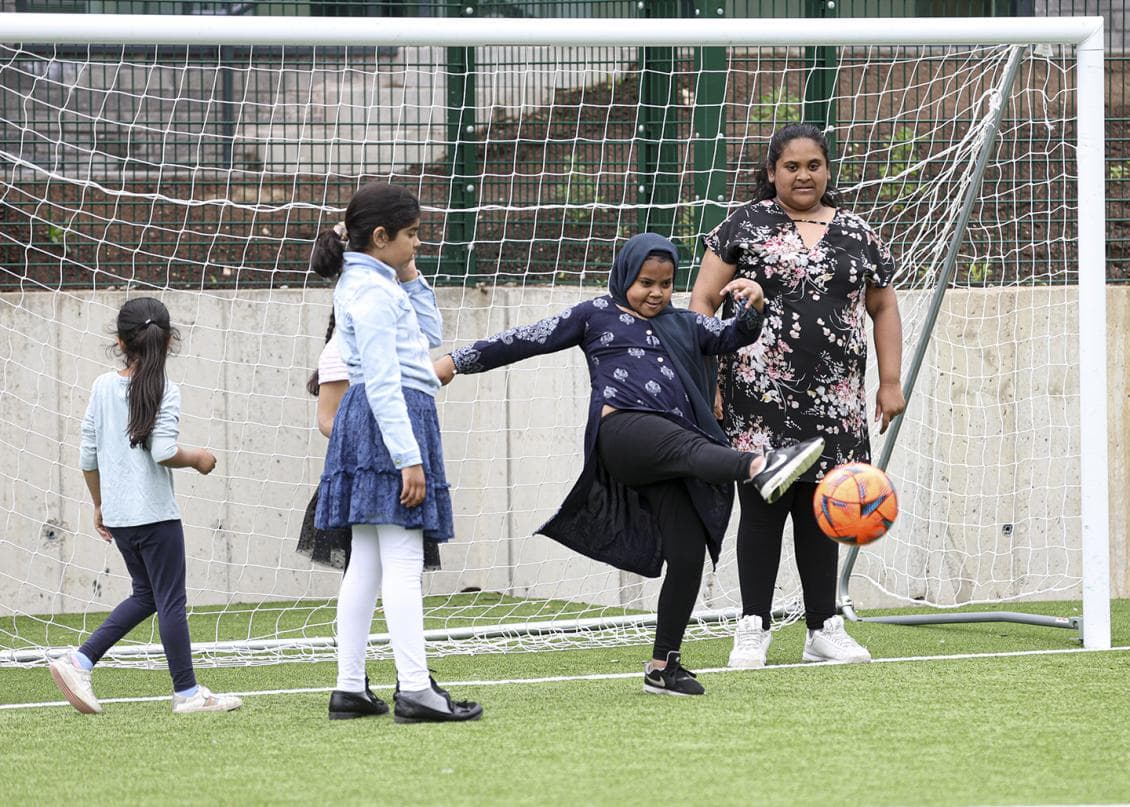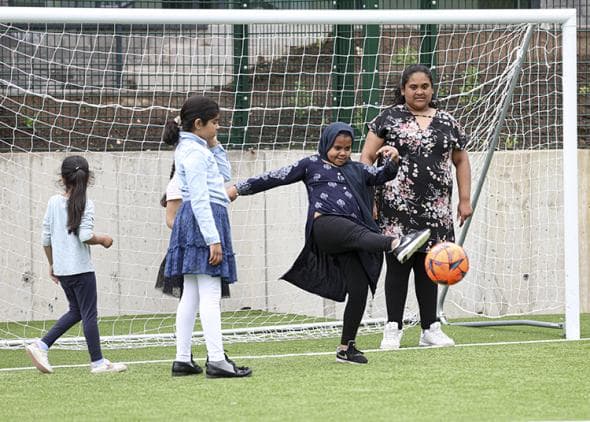CEO blog: “Football's coming home? Not until it's available to play in every school, at every club and in all communities”
29 Jul 2022
Share
![]()
![]()
29 Jul 2022
Share


Football Foundation Chief Executive, Robert Sullivan, argues for the legacy of Lioness success to be equal access to playing opportunities and facilities for all women and girls across England:
The wonderful and inspiring scenes as the Lionesses march to the Women’s UEFA Euro Final this weekend come at a very reflective moment for those who are tasked with enabling grassroots sport. We are ten years exactly from the glorious summer of 2012; but the argument still rages over “legacy” and what impact the London Olympics and Paralympics had in delivering a positive behavioural change in sports participation. Legacy has become a “difficult” word – seemingly inextricably linked to any major sporting event bid – yet often ambiguous and problematic in its aftermath. Whilst many have written at length in recent days about the London 2012 impact, I want to focus on the opportunity in front of us right now with both the Women’s Euros coming to a close and the Commonwealth Games just beginning. Specifically, I want to highlight three areas of focus (amongst others I am sure) that could really make a difference and allow for a genuine and sustainable participation impact to emerge from the Lionesses efforts.
Firstly, young girls coming to football for the first time need a great place to play. At the Football Foundation, we believe that high quality, accessible and inclusive facilities are vital to welcoming new participants to any sport – and to keep them interested, enjoying their experience, and coming back for more. Football Foundation grants have supported more than 6,000 women’s and girls’ teams. Over two-thirds of our Lionesses learnt their trade playing on pitches that have been improved thanks to this funding. It was great to see England’s top footballers back with their grassroots club at the start of the tournament when the Lionesses welcomed some of these clubs to St George’s Park, including Ellen White with Aylesbury United Ladies and Girls FC, Lauren Hemp with North Walsham Town FC and Millie Bright with Killamarsh Dynamos. More women and girls playing the game is going to put even greater pressure on the number and quality of facilities across England. The Football Foundation, with the investment support of the Premier League, The FA, Sport England and DCMS, will meet this challenge.
However, a great place to play is not always enough. So, secondly, there needs to be a cultural change around equal access. A great new pitch will not enable growth in women and girls’ football if they can’t get on it. Too often the best pitches and the best playing slots are booked up before the women and girls teams get a look in. Clubs and facility operators need to reflect on this “old thinking”. At the Football Foundation, we will not fund a new facility unless it guarantees equal opportunities for women and girls to play. That means not just access to a pitch at 9pm on a Friday night or for an hour on a mid-week morning. Rather, it means we expect those who receive our funding to use their facilities to optimise the growing opportunity for women and girls’ football; and, if not, risk losing their funding.
So, a great facility with fair access within the club and community game is vital. But the third area of focus underpins both. Unless we fundamentally improve the experience of girls playing football within schools, we will not see the real potential for a participation pull-through into the grassroots game. Only 63% of schools offer girls football in curricular, and only 40% any form of extra-curricular football. The FA has rightly campaigned to address this shortfall. Girls should not feel marginalised within the formal or informal school environment for wanting to play football. They should be encouraged and enabled to the same level as their male classmates. PE teachers must embrace this generation of girls’ enthusiasm for the game and leverage the already existing facilities and resources within schools that support boys’ football. The FA, Sport England, Youth Sports Trust and others are all out their working hard on this agenda and I am optimistic that we will see real change in the next year or two.
So, whilst we all hope for victory on Sunday evening at Wembley, a lasting win for women’s football would be to see it really come home – to the heart of every school, club and community in England.